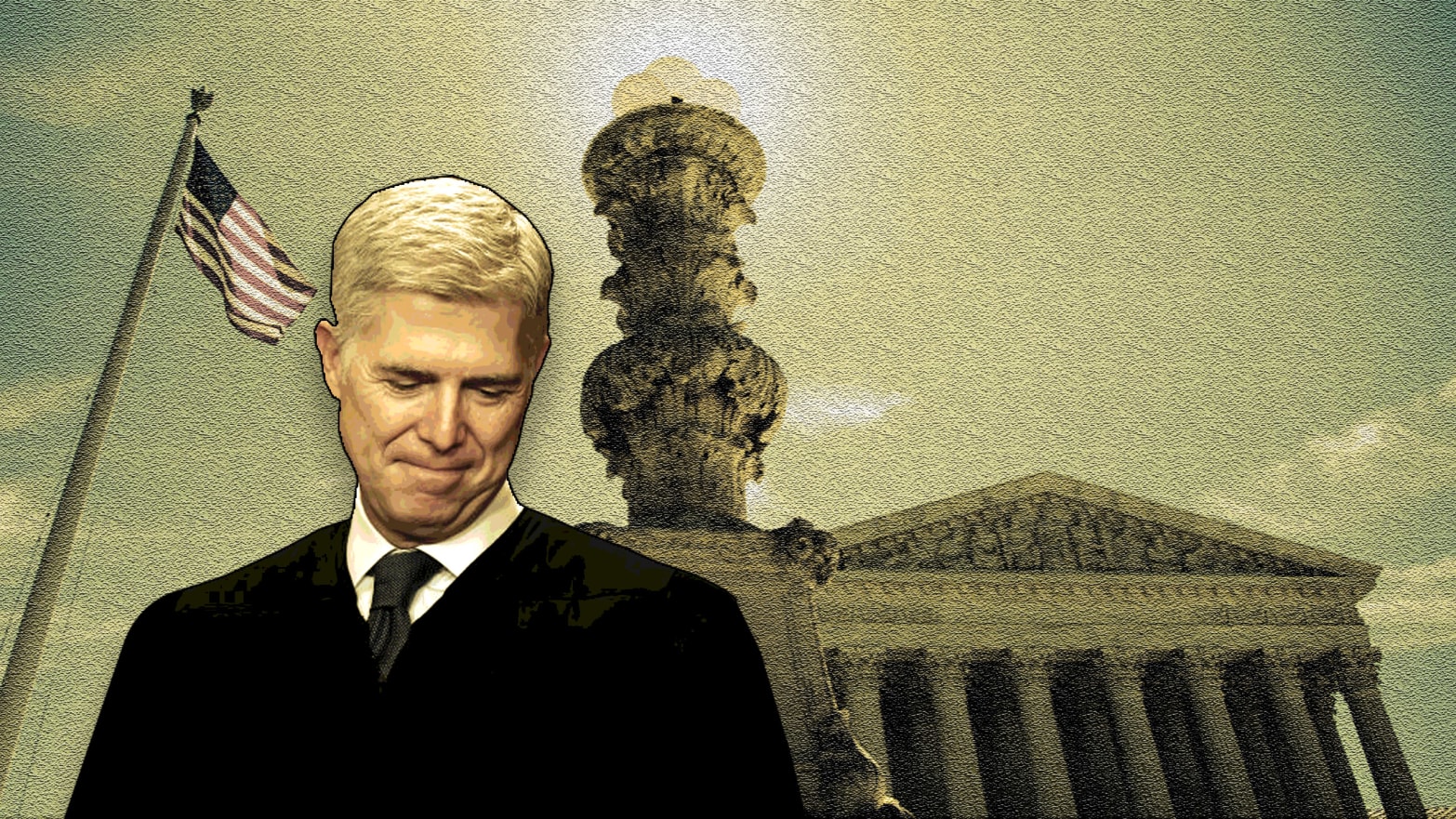The Supreme Court is getting back into the religion business.
It issued one landmark decision today, Trinity Lutheran Church v. Comer, and today announced it will hear another landmark case in the fall, Masterpiece Cakeshop v. Colorado Civil Rights Commission.
And perhaps most importantly, Justice Neil Gorsuch’s opinions have signaled that he will be to the right of Justice Antonin Scalia on all of them. While it is perhaps too soon to say so definitively, based on what we’ve seen so far, Gorsuch isn’t the next Scalia: he’s the next Justice Clarence Thomas.
Trinity Lutheran is the kind of religion case you learn about in law school. Missouri gives out grants to resurface playgrounds with plastic made of recycled tires. Trinity Lutheran has such a playground, but was denied a grant because it’s a church, and the First Amendment bars government aid to churches.
This looks like discrimination to conservatives. A playground is a playground; why is Missouri discriminating against churches, while giving money to everyone else? That’s a violation of the First Amendment’s Free Exercise Clause. But to liberals, awarding the grant would be the government funding religion – a direct violation of the First Amendment’s Establishment Clause.
Today, the Supreme Court sided with conservatives. Dismissing the Establishment Clause claim, seven members of the Court – everyone except Justices Ginsberg and Sotomayor – held that this kind of neutral aid, which has nothing to do with religion itself, cannot be withheld from religious institutions. Missouri must give the church the grant – or at least, not exclude it from consideration.
In dissent, Justice Sotomayor – raising her voice as she read from the bench – was astonished that the Court was allowing direct aid to a church. The playground isn’t just a playground, she said; it’s part of the church’s “Learning Center” which in the church’s own description serves as “a ministry of the Church and incorporates daily religion and developmentally appropriate activities.” Sure, it’s a swingset and not a pew – but it’s still part of the church and its mission.
Read together with three other actions the Court took today, however, Trinity Lutheran may be most significant as Justice Gorsuch’s coming out party.
First, Gorsuch authored a concurring opinion, which Justice Thomas joined, in which he joined the entire opinion except for a single footnote, which restricted the case to “express discrimination based on religious identity with respect to playground resurfacing.” That is, itself, a weird footnote, probably written to get Justices Kagan and Breyer on board. If this decision is solely about “playground resurfacing,” it’s not much of a decision at all.
But Gorsuch’s concurrence was weirder. It went far beyond that footnote, arguing (like Justice Sotomayor) that the playground is religious, and that it still must be funded. “Does a religious man say grace before dinner?” Justice Gorsuch asked. “Or does a man begin his meal in a religious manner? Is it a religious group that built the playground? Or did a group build the playground so it might be used to advance a religious mission?”
In other words, Justice Gorsuch went out of his way to expand the case’s significance. If his were the majority opinion, it would be a revolution in the Court’s church-state jurisprudence.
Second, Justice Gorsuch’s expansive interpretation of the Free Exercise Clause is particularly relevant now that the Court has taken Masterpiece Cakeshop, which is about a baker who refused to decorate a wedding cake for a same-sex couple.
This case has been percolating for over five years, and as I’ve said about it before, it is actually an outlier. Most religious liberty cases aren’t about sole proprietors baking cakes; they’re about large corporations denying benefits, and the public declarations that some people’s rights are less equal than others. Masterpiece Cakeshop can’t use religion to exempt itself from LGBT civil rights laws any more than the formerly-KKK-leader-owned Piggie Park barbecue tried to use religion to exempt itself from African-American civil rights laws.
But per Justice Gorsuch – echoing a recurring trope on the Religious Right – religious exercise does not end at the church door. (No one actually argues that it does, but conservatives love to argue that it doesn’t.) A man [sic] begins his meal in a religious manner, runs his business in a religious manner, and is thus constitutionally protected.
Assuming Justice Kennedy remains on the Court next term, Masterpiece Cakeshop will likely be a 5-4 decision, with Kennedy as the swing vote. And if Trinity Lutheran is a guide, expect Justices Gorsuch and Thomas to stake out territory far to the right of the judicial mainstream.
Third, today also saw a brief Court action regarding same-sex marriage, and the rights of same-sex couples – with Justice Gorsuch again staking out far-right territory. That case, Pavan v. Smith, was about an Arkansas policy that put both names of a married couple on a child’s birth certificate if the couple was opposite-sex but not if the couple was same-sex. Arkansas argued that its policy was to have biological parents listed, but the Court noted that in cases of artificial insemination, the state listed husbands even if they were not the biological fathers.
Six justices held that this violated Obergefell v. Hodges, which granted same-sex couples the constitutional right to marry -- including Chief Justice Roberts, who had dissented in Obergefell. If Arkansas lists spouses, rather than biological parents, then it must do so whether the spouses are male or female.
Justice Gorsuch dissented, joined by Justice Thomas and Justice Alito. He argued that the slim exception for artificial insemination doesn’t void the state’s reasons for listing biological parents in most cases, and that after all, Obergefell didn’t discuss precisely this situation. After all, it was only about playgrounds, right?
As Chief Justice Roberts’ joining the majority indicates, there’s no way to maintain Obergefell but not extend it to blatantly discriminatory treatment of same-sex couples. Straight couples who use artificial insemination are listed on the birth certificate. Gay couples who do, are not. How on earth is that marriage equality?
The answer, of course, is that it isn’t. Justice Gorsuch’s Pavan dissent indicates that he, with the Court’s other far-right ideologues, wants to limit or overturn same-sex marriage, His evasive answers then were troubling, and now their true meaning has been confirmed. Pavan can’t be squared with Obergefell because Justice Gorsuch doesn’t agree with Obergefell.
In sum, while the Court’s actions on religious and social justice issues is interesting, Justice Gorsuch’s role is even more so. Gorsuch has taken his place on the Court’s far right, right next to Justice Thomas. He would allow government funding of churches and allow a state to discriminate against legally married gay people. His dicta suggests a massive reordering of church-state jurisprudence in general. And as a 49-year old justice three months into a lifetime term, he is obviously just getting started.

